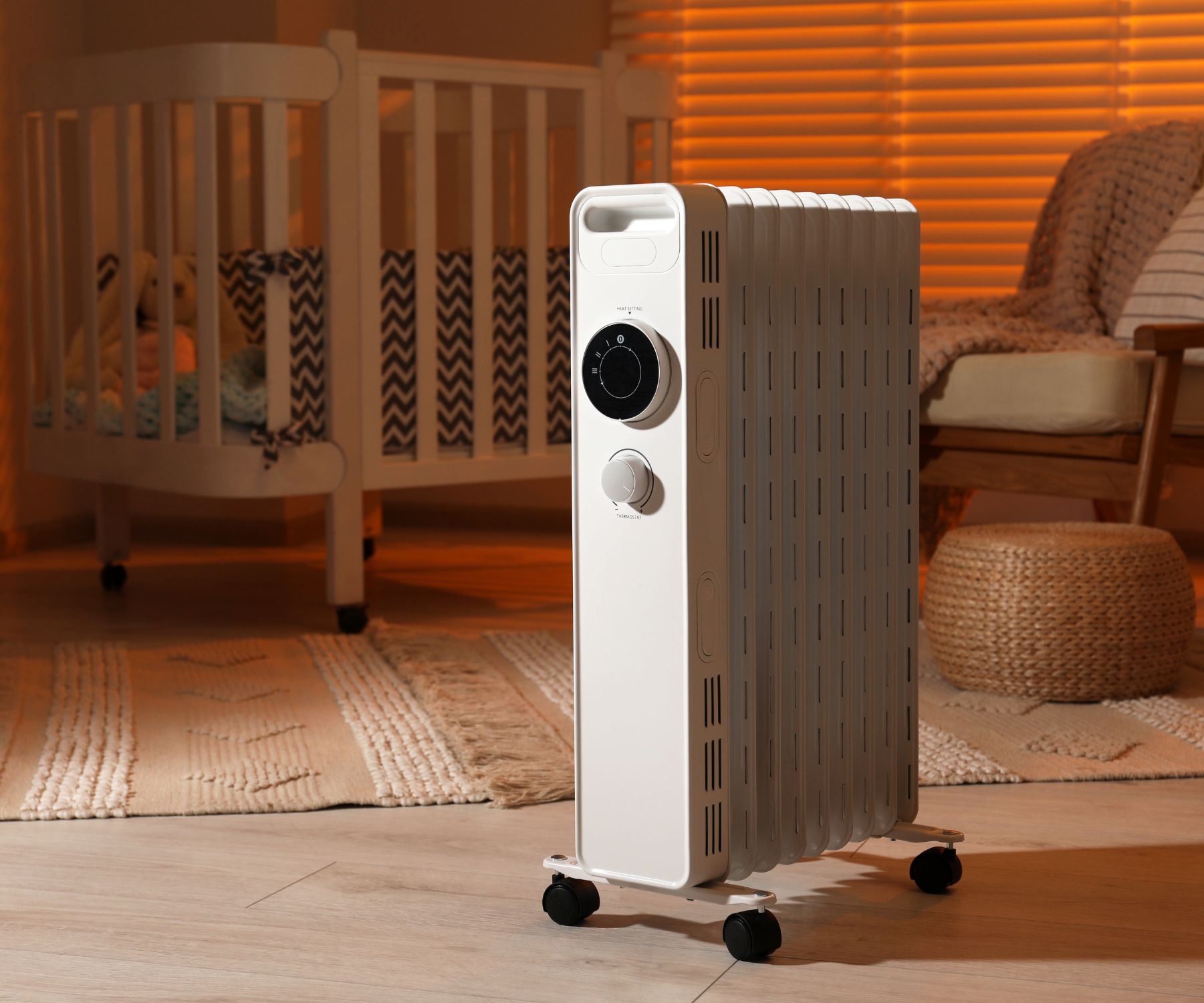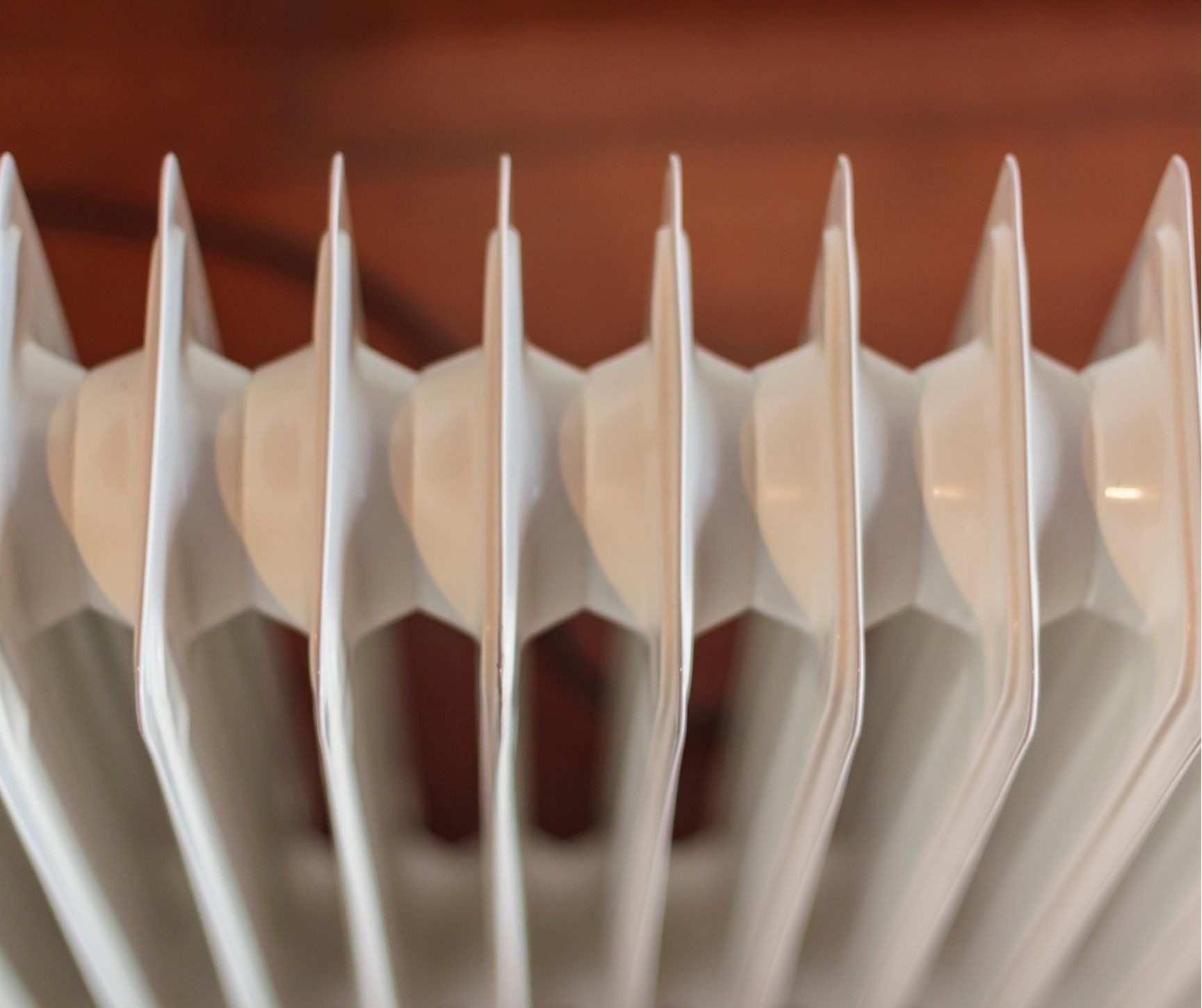Oil heaters are one of the most popular types of space heaters that you can purchase and they have a lot of pros compared to other types of electric space heaters including being more economical and completely silent. (Mostly)
But as we all know, any appliance has the capacity to break down or malfunction.
The difference is that something like the freezer going out and food spoiling doesn’t carry the same type of weight as a space heater malfunctioning and starting a catastrophic fire.
So knowing the dangers associated with space heaters is well worth the extra time and effort.
Table of Contents
Dangers of Oil Heaters
Oil heaters have a less than perfect past. The reason is because of a massive recall of DeLonghi oil heaters between the years of 1980 and 1988. Source
Can an Oil Heater Explode?
The recall was due to the oil heaters having a switch malfunctioning that led to the heaters exploding. The official reason that the units were faulty was because they were produced in Italy and not designed to work with power sources in the United States.
A simple oversight that caused a lot of deaths and 85 lawsuits.
Oil heaters are filled with diathermic oil that has the same capacity to heat and catch fire as easy as a skillet full of oil frying French fries.
However remote the possibility, there is obviously the capacity for a component to fail and cause an oil heater to get so hot that it explodes. DeLonghi proved that.
Does that mean they’re more dangerous than other types of heaters or ovens, stoves, chimneys, so forth?…
“Arguably, if there had never been an incident or incidents involving oil heaters exploding because of faulty switches, Oil Heaters would more likely be known as the safest type of space heater.”
That is because there are no open sources of flames or coils that become glowing red hot involved in the operation of an oil heater. The likelihood of something catching fire around a oil heater is much less than other types of heaters like infrared heaters.
 The possibility of leaking
The possibility of leaking
Again, you may only be talking about a remote possibility, but oil heaters do have the possibility of leaking oil if there is a defect in the welding or crack in the metal. Leaking is not a common complaint you hear about oil heaters yet there is a danger of one leaking and warrants saying so.
High wattage
Though high wattage may not be a danger to your body for your property, it definitely put your pocketbook in jeopardy. Oil heaters do not heat a room like a ceramic or infrared heater. They take much longer to warm my room than other types of space heater technologies.
For that reason they are more likely to be ran on high than other types of heaters. Most every space heater uses 1500 watts.
1500 w is the most you run on a single circuit.
That means that a oil heater is using one circuit at full capacity.
That translates to extra energy and an extra high energy bill.
Off gassing
Oil heaters are known to release a pretty strong chemical scent when they are ran brand new. The smell a oil heater releases could be considered dangerous since it is burning off chemicals. But it is not out of the ordinary for new appliances to have off gassing for the first few uses.
The best policy is to turn it on high and set it somewhere where the off gassing does not effect you. Til it has dissipated.
Other aggravations….
Oil Heater Clicking Sound
Not what you would call it danger unless we’re talking about being dangerous to your sanity, But there is an issue with oil heaters making a clicking sound while they heat up and expand. Judging by the amount of people who complain about this issue on Amazon, it’s worth mentioning.
The clicking sound is a noise that sounds like crackling when you first turn the heater on and the oil is heating up. After the oil has heated up and the heater is at a stationary temperature, the crackling sound will go away.
Do oil heaters cause carbon monoxide poisoning?
This is at the bottom of the list because carbon monoxide comes from fuels like kerosene. Oil heaters do not burn any type of fuel and therefore do not create carbon monoxide or pose a risk of carbon monoxide poisoning in any way.
There has been reports that the off-gassing that happens when a new oil heater is first used contains carbon monoxide but there has been zero lab studies that have proven that to be so.
Carbon monoxide poisoning is a result from burning a gas heater in the house without the proper ventilation system to exhaust the carbon monoxide.
Gas heaters should be relegated to the garage and areas where there is adequate ventilation.
 Another Big Gripe
Another Big Gripe
That brings up one more aggravation or shortcoming of oil heaters. Oil heaters do almost nothing in an outdoor situation. They need an enclosed area where heat cannot escape to be fully adequate source of heat.
Recap
Oil heaters have a bad reputation that is warranted because the recall of DeLonghi oil heaters that happened in the 1980s. During that time multiple DeLonghi oil heaters exploded causing house fires and deaths.
The problem was identified as a faulty switch that failed because of discrepancies between Italian and US powers sources.
Even though the problem was fixed, it still proved that given the right circumstances, an oil heater could explode and cause great humanly damage and property damage.
Other dangers and aggravations of oil heaters include off-gassing when new and the high amount of watts consumed.
Clicking noises while heating up and slow heating times round it out.
Recalled Oil Heaters.
The serial #s are on a sticker either on the side or the bottom of the unit
Delonghi
9306, 9308, 9608, 4308, 5307, 5108, 5108T, 4707, 3107, 3107T
Sears
9306, 5008, 5009, 5307, 5108T, 3107
Welbilt
97/7308, 7308T, 97/7307


 Another Big Gripe
Another Big Gripe